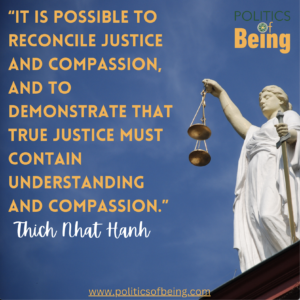
Justice – An Agenda for Action Series
Justice
The dominant paradigm of retributive justice builds upon and strengthens our instinct for retaliation, while the practice of restorative justice allows all those involved to cultivate human values and qualities such as understanding, deep listening, compassion, healing, inclusivity, courage and responsibility
Restorative justice is based on a non-adversarial process involving all stakeholders through dialogue, focused on healing and reintegration. While the retributive justice paradigm is at the root of the current criminal justice system’s crisis in many countries, restorative justice displays very high satisfaction rates from victims and offenders, offers a potential to reduce the costs of doing justice and increase the response to crime efficiency and performs at least no worst and probably better than conventional approaches in terms of reoffending. Ultimately restorative justice’s effectiveness depends on the quality of these programs, which heavily rely on human qualities, whose advancement is at the core of the politics of being.
Politics of Being : An agenda for action series
The Politics of Being is a deep but not ethereal vision. It offers concrete actionable policy recommendations in many sectors, almost exclusively based on existing examples. We can start implementing it today if we choose.
In this series, we will share every week some inspiration and thoughts about what implementing the Politics of Being would entail in nine different sectors. This agenda for action with examples and references is fully developed in the book : https://politicsofbeing.com/get-the-book/
Here you can discover what concrete policies and actions can support a regenerative relationship to justice.
Stay tuned and enjoy !
Read the agenda for action series for each sector here:
